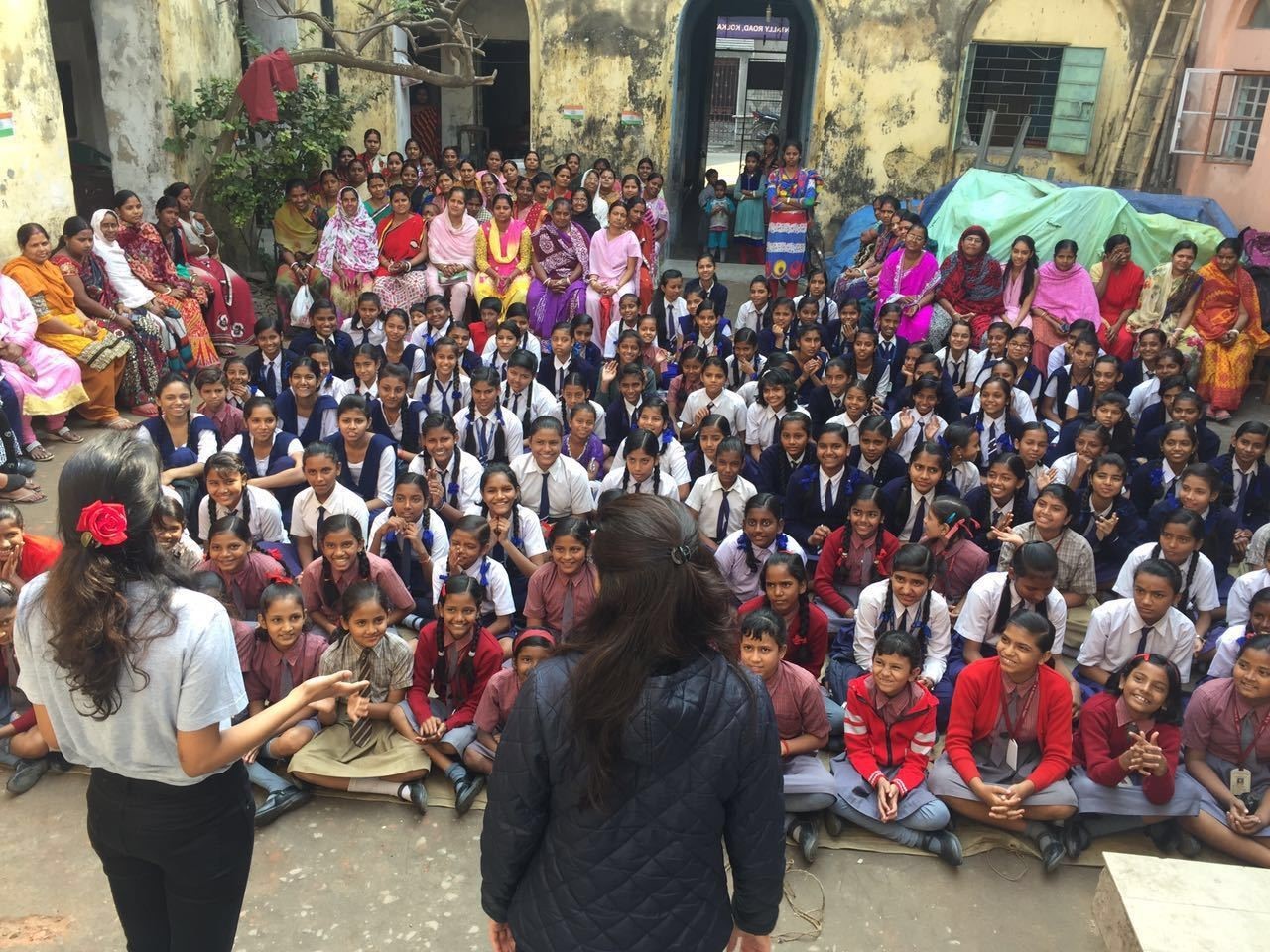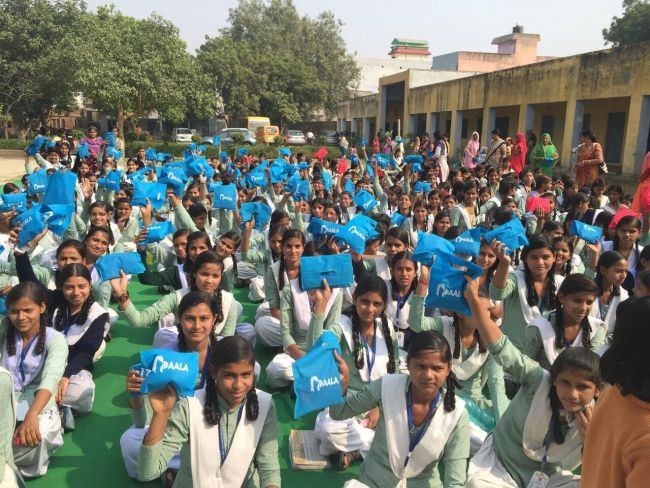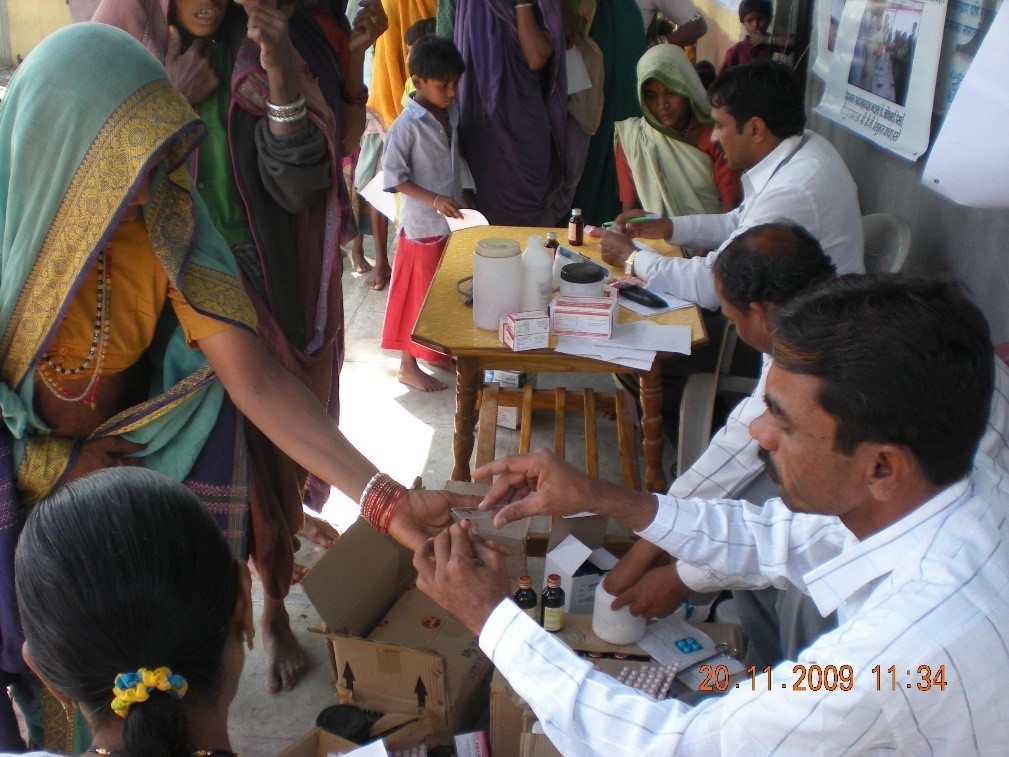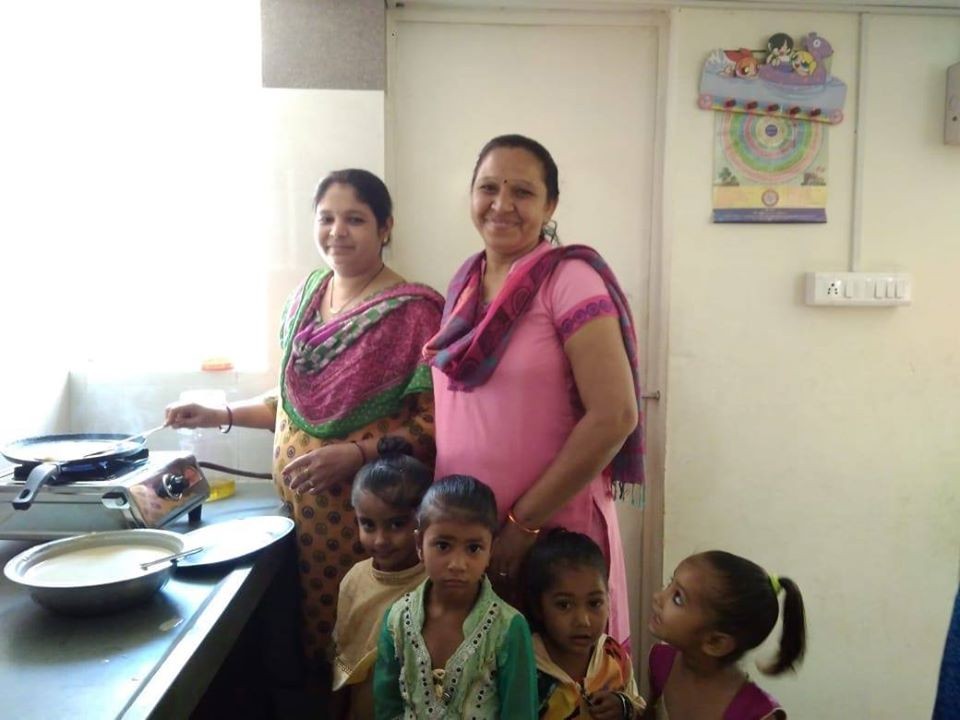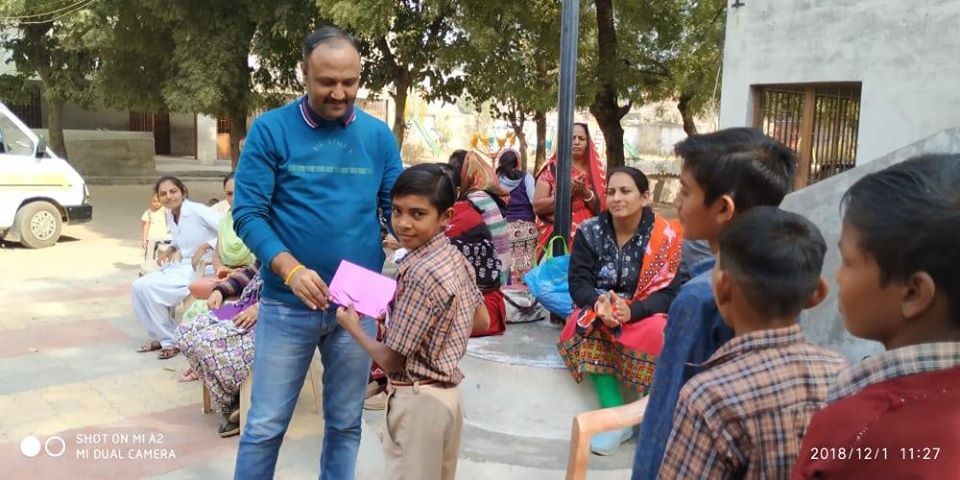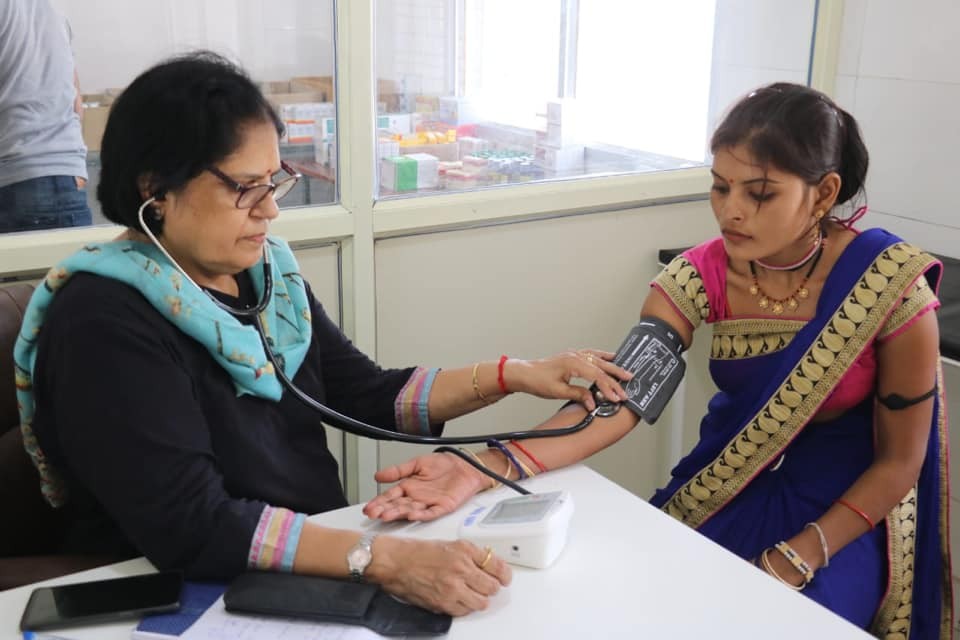OUR IMPACT
Menstrual Hygiene and Awareness Program conducted for Women
Project Implementation Plan
The goal of this project is to increase girls’ awareness about menstrual health and safe practices so that it can increase overall menstrual and reproductive health, reduce barriers that prevent girls from attending school, and increase their quality of life. This project helps achieve the goals set out by the Gujarat government as a part of the Kanya Kelavani scheme, which aims to increase Gujarat’s girl child literacy rates and decrease dropout rates. This is proposed to be done by the distribution of reusable, sustainable sanitary pads, supplemented with information sessions regarding menstrual and reproductive health, for girls who are around the age of reaching menarche.
Girls between Grade 4 and Grade 8 will be given ‘Hygiene packs’ including a set of reusable sanitary pads, a pair of underwear, soap and an informational pamphlet with information about their reproductive health, hygiene, menstruation awareness and how to correctly use the pads. Additionally, information sessions will be held by trained volunteers to elaborate on menstruation, reproductive health and sexual and domestic abuse. This will be a first of its kind city-wide project dealing with menstrual health and hygiene
The first phase of this project is proposed to be conducted at AMC Managed public schools :
I. Two sets of trained volunteers will visit one school at a time, and hold an interactive information session which would last for two hours.
II. In this time, an educational video about menstruation will be shown, concerning the biological explanation behind it, common dilemmas girls face, and healthy habits to practice during menstruation. The concept of consent will be brought up to explain sexual and domestic abuse, and how to seek help if required.
III. Following this, the ‘Hygiene Packs’ will be distributed, and volunteers will explain how the sanitary pads are to be used.
IV. The Hygiene Packs will contain reusable sanitary pads that can be used for the period of one year, soap to clean the said pad, 2 panties, and a pamphlet with infographics, in a jute bag.
V. Questions will be encouraged so that volunteers can clear any doubts the girls may have. Pre and Post session surveys will be held to analyse the impact of the informational session.
Project Challenges
Studies reveal that only 12% of women in India have access to sanitary napkins, while the remaining 88% resort to unsafe alternatives due to the limitations of accessibility and affordability, and the lack of correct information. The materials used, which range from cloth to ashes and husk sand, pose several health risks- it has been found that Reproductive Tract Infection (RTI) is 70% more common among these women.
They also pose barriers to these women and girls, making it difficult to attend work or school:
● 90% of girls miss 1-2 days of education per period. 23% of girls drop out of school when they start menstruating, due to lack of available methods as well as taboos surrounding the issue.
● 54% of adolescent girls in India are unaware of menstruation before they have their first period.
● 77% do not know that the uterus is the source of the bleeding. Only 45% believe that menstruation is normal; and a vast majority observe socio-cultural, religious or food taboos during their period. 70% of mothers, who are girls’ main source of information, consider menstruation to be dirty and polluting.
The first experience of menstruation for these girls is often associated with shame, fear, anxiety and agony. Several regional studies have also shown that menstruating girls are not aware of the biological reasons associated with menstruation, and in fact perceived menstruation to be a “disease”, indicating gaps in reproductive health awareness in adolescent girls. In cases where plans for menstrual education are established by the government, sessions are usually not carried out since teachers themselves feel awkward discussing the issue.
Results & Outcome
Educating women and girls about personal hygiene and menstrual process helps but myths and taboos associated with menstruation.
They are facilitated with resources required for a smooth cycle. Girls do not skip classes anymore because of menstruation and they are able to manage other tasks confidently without any shame.
About Ngo
KarmaKonnect is a non-profit social venture that aims to connect the fragmented ‘giving’ ecosystem by empowering NGOs, donors, volunteers, corporates and government to create impactful social development interventions. KarmaKonnect is an enabler; motivating and empowering individuals and organizations to tap the growing philanthropy landscape by creating, connecting, and/or collaborating for credible projects and causes. The KarmaKonnect team is currently involved in a number of initiatives across the country, through various dedicated volunteers and NGOs. We are primarily working on:
• Child education and livelihood skills (slum evening schools/shelters and aiding low income govt schools) in Gujarat, Telangana, MP and Delhi through utilization of existing govt infrastructure and innovative collaborative models.
• Women Empowerment and legal help, rescue and rehabilitation projects (primarily on Gujarat and UP)
• Rural Empowerment and Citizens Change/Awareness programs (Gujarat, MP, UP, Telangana and Rajasthan).
• We also Executing comprehensive "adopt a village" projects for donors involving well researched sustainable solutions for development
• Training and placement of specially abled
• Refuge rehabilitation projects. (Urban slums)
• Adhoc Medical help and assistance as needed.

